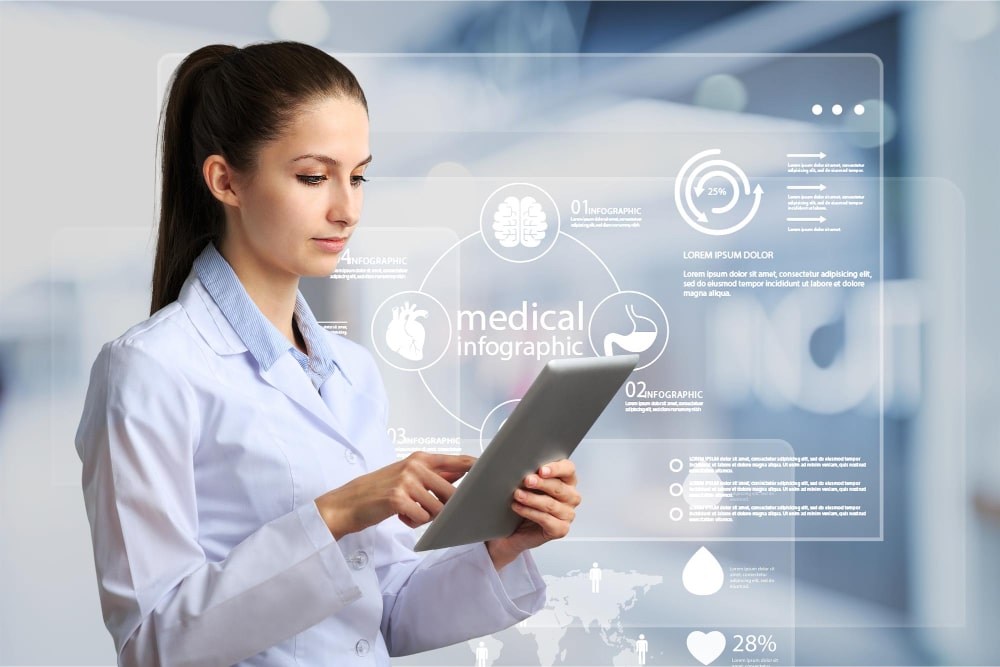Revolutionizing Healthcare: Exploring Innovative Solutions for a Healthier Tomorrow

Innovation has long been a driving force in human progress, transforming the way we live, work, and interact with the world around us. In recent years, this spirit of innovation has extended its reach into the realm of healthcare, ushering in a new era of possibilities and promising to revolutionize the way we approach wellness and disease management. From cutting-edge technologies to groundbreaking therapies, let’s delve into some of the most innovative health solutions shaping the future of medicine.
- Telemedicine and Digital Health: The advent of telemedicine and digital health platforms has democratized access to healthcare, breaking down barriers of time, distance, and resources. Through virtual consultations, remote monitoring, and mobile health apps, patients can now receive personalized care from the comfort of their own homes. This not only improves convenience and accessibility but also enhances patient engagement and empowers individuals to take control of their health.
- Artificial Intelligence and Machine Learning: Artificial intelligence (AI) and machine learning algorithms are revolutionizing healthcare by enabling more accurate diagnostics, personalized treatment plans, and predictive analytics. These advanced technologies can analyze vast amounts of data—from medical images and genetic profiles to electronic health records—and extract valuable insights to inform clinical decision-making. By augmenting the capabilities of healthcare providers and improving patient outcomes, AI is poised to transform every aspect of the healthcare ecosystem.
- Precision Medicine and Genomic Therapy: Precision medicine takes a targeted approach to healthcare, tailoring treatments to the unique genetic makeup, lifestyle factors, and environmental influences of each individual. Genomic sequencing and molecular profiling technologies have unlocked a deeper understanding of disease mechanisms and paved the way for personalized therapies that are more effective and less invasive. From gene editing and gene therapy to cancer immunotherapy, precision medicine holds the promise of revolutionizing the treatment of complex and chronic conditions.
- Wearable Technology and Remote Monitoring: Wearable devices such as smartwatches, fitness trackers, and biosensors are empowering individuals to track their health metrics in real-time and make informed lifestyle choices. These devices can monitor vital signs, activity levels, sleep patterns, and other biometric data, providing valuable insights into overall health and well-being. By integrating wearable technology with remote monitoring platforms, healthcare providers can proactively identify health issues, intervene early, and deliver timely interventions, ultimately improving patient outcomes and reducing healthcare costs.
- Regenerative Medicine and Stem Cell Therapy: Regenerative medicine harnesses the body’s innate healing mechanisms to repair, replace, or regenerate damaged tissues and organs. Stem cell therapy, tissue engineering, and gene editing technologies are at the forefront of this field, offering new hope for patients with degenerative diseases, traumatic injuries, and congenital disorders. By unlocking the regenerative potential of cells and tissues, regenerative medicine holds the promise of transforming the treatment paradigm from managing symptoms to restoring function and quality of life.
- Virtual Reality and Therapeutic Gaming: Virtual reality (VR) and therapeutic gaming are emerging as powerful tools for rehabilitation, pain management, and mental health therapy. VR simulations can transport patients to immersive environments where they can engage in therapeutic activities, overcome phobias, or alleviate chronic pain. Therapeutic gaming platforms leverage the principles of gamification to promote physical activity, cognitive stimulation, and social interaction, making healthcare more engaging, enjoyable, and effective.
In conclusion, the landscape of healthcare is undergoing a profound transformation, driven by innovation, technology, and a commitment to improving patient care. From telemedicine and artificial intelligence to precision medicine and regenerative therapies, these innovative solutions hold the potential to redefine the future of medicine and empower individuals to live healthier, happier, and more fulfilling lives. As we embrace these advancements and continue to push the boundaries of what’s possible, let us remain steadfast in our pursuit of a world where innovation and compassion converge to create a healthier tomorrow.
